African intelligence services. At the service of power.
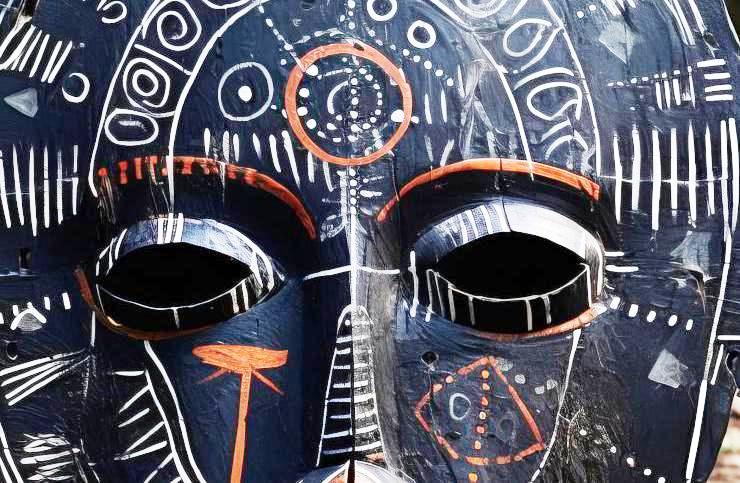
In many African countries, intelligence agencies are used by those who govern as a tool for social control and repression of dissent. From Kagame’s Rwanda to al-Sisi’s Egypt, the evolution of an apparatus that should serve the state and not those who hold power.
It was New Year’s Eve 2014 when Patrick Karegeya, former head of Rwanda’s external intelligence services, was in a suite at the Michelangelo Towers in Johannesburg. On the other side of the corridor, waiting for him in another room, was an old informant of his. The bait moved and the trap was sprung. Karegeya will be found dead twenty-four hours later, strangled with a towel.
Accused of desertion and insubordination by the Kigali regime, he had managed to escape to South Africa in 2007, where he founded the opposition party in exile, the Rwanda National Congress.
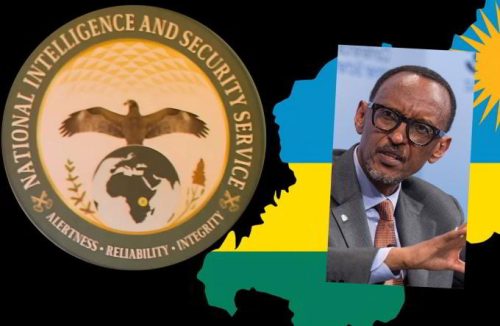
Rwandan President Paul Kagame. Photo Pres. Office – The Logo of National Intelligence and Security (NISS).
A few days after the murder, Rwandan President Paul Kagame utters lapidary words: “You cannot betray Rwanda and not be punished for it. Anyone, even those still alive, will pay the consequences. Anyone. It’s only a matter of time.”
On May 28, 2024, the journalists’ collective Forbidden Stories published an investigation entitled “Rwanda Classified”, which also focuses on the repression carried out by the Rwandan authorities against opponents and critical journalists.
The information provided by 50 journalists from 11 different countries revealed intimidation, threats or assassination attempts aimed at silencing all critical voices, both in Rwanda and abroad. In Belgium alone, the report counts around twenty repressive and surveillance actions over the last decade. These include four suspicious deaths of Rwandan citizens since 2004. The systematic persecution of opponents is a reflection of how Kagame has placed Rwandan intelligence, the National Intelligence and Security Services, at the service of his stay in power.
Family affairs
The past and recent history of African intelligence is full of these episodes. If there are presidents to depose, coups to organize, opponents to suffocate or traitors to suppress, it is through the secret service rooms that the decisions that count pass. African countries have inherited a method in part from the European powers that colonized them, but after the season of independence, they began to create their own, shaping it according to the diktats of those who hold power. On the other hand, there is little to be surprised about in Africa’s secret services remaining more at the “service” of the leadership than of the institutions.
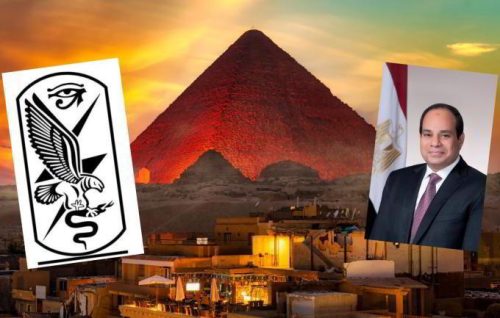
Egyptian President Abdel Fattah El-Sisi. CC BY 4.0/Pres.Office. In the background, the Pyramids 123rf – The emblem of The General Intelligence Service (GIS).
No matter how many precautions one may take, keeping control of such a complex machine as intelligence is a delicate undertaking that requires absolutely trustworthy figures to manage it. In Egypt, too, the structure that manages the 007s has become a family affair with President Abdel Fattah al-Sisi who has placed his firstborn Mahmoud at the top of the GIS (General Intelligence Service), the most powerful of the country’s mukhabarat – responsible for internal security and counter-espionage and today headed by Hassan Mahmoud Rashad.
Politicized services
The American historian Ryan Shaffer has written two volumes on the evolution of African secret services, African Intelligence Services: Early Postcolonial and Contemporary Challenges and The Handbook of African Intelligence Cultures (Rowman & Littlefield, 2023). Among the cases analysed is that of Eritrea where the National Security Office (NSO), headed by General Major Abraha Kassa, reports directly to President Isaias Afwerki, in power since 1993.
 According to Shaffer, the control that the Eritrean services exercise over citizens, both internally and around the world, is so widespread that it is comparable to that exercised by the Stasi in East Germany.Because they are seen as an instrument of control and repression, the activities of gathering, analysing and sharing information and predicting threats, the secret services in Africa receive on average much less funding than the police forces. “Most African countries give priority to the police over intelligence,” says Akram Kharief, a defence and security analyst. “Although in recent years the African services have shown greater interest in new intelligence techniques and in the surveillance of telephone and Internet communications. The emergence of Islamist terrorism has encouraged more investment in the Sahel countries too.” These processes are, however, slow in decision-making compared to the speed with which new threats loom over security. “African intelligence agencies are not evolving because of a lack of transparency within them and because they are used exclusively to preserve regimes and as political police forces,” Kharief continues. “To stimulate their evolution, a political transformation of African governments would first be needed.” This, according to the analyst, is not happening in his country, Algeria: “The Algerian secret services are old, their weak point has always been excessive involvement in politics, which has now made them the skeleton in the closet of the Algerian government.”
According to Shaffer, the control that the Eritrean services exercise over citizens, both internally and around the world, is so widespread that it is comparable to that exercised by the Stasi in East Germany.Because they are seen as an instrument of control and repression, the activities of gathering, analysing and sharing information and predicting threats, the secret services in Africa receive on average much less funding than the police forces. “Most African countries give priority to the police over intelligence,” says Akram Kharief, a defence and security analyst. “Although in recent years the African services have shown greater interest in new intelligence techniques and in the surveillance of telephone and Internet communications. The emergence of Islamist terrorism has encouraged more investment in the Sahel countries too.” These processes are, however, slow in decision-making compared to the speed with which new threats loom over security. “African intelligence agencies are not evolving because of a lack of transparency within them and because they are used exclusively to preserve regimes and as political police forces,” Kharief continues. “To stimulate their evolution, a political transformation of African governments would first be needed.” This, according to the analyst, is not happening in his country, Algeria: “The Algerian secret services are old, their weak point has always been excessive involvement in politics, which has now made them the skeleton in the closet of the Algerian government.”
In search of autonomy
In recent years, the African Union has attempted to fill some of the gaps in African intelligence. In 2002, the African Standby Force (ASF) was established, a political and military tool for rapid response to crisis situations, which so far, however, has not been able to accelerate the processes of collegial resolution of regional tensions.
In 2020, the Committee of Intelligence and Security Services (CISSA) was created, designed as a bridging structure for cooperation between African intelligence agencies.
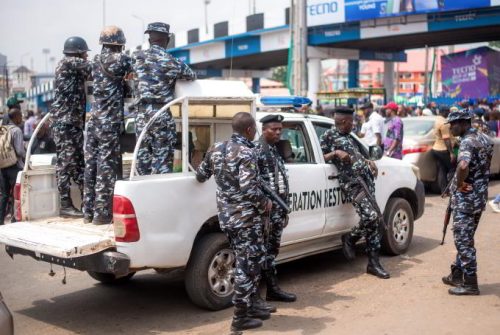
Nigeria Police Force. Most African countries prioritise the police over intelligence. Shutterstock/Tolu Owoeye
The main source of economic resources, advanced equipment and know-how, however, remain the old and new extracontinental allies. “What survived from the relations with the former colonial empires has drawn the current African map of intelligence cooperation,” Kharief points out. “The Francophone countries have maintained strong ties with France and the members of the Commonwealth have remained close to Great Britain and the United States. I do not think, however, that adherence to Western standards is necessarily a sign of development or progress for an intelligence service. The South African secret services were initially compliant with British standards, and they also benefited from the experience acquired by former members of the MK (military wing of the African National Congress, ed.) in the communist bloc”.
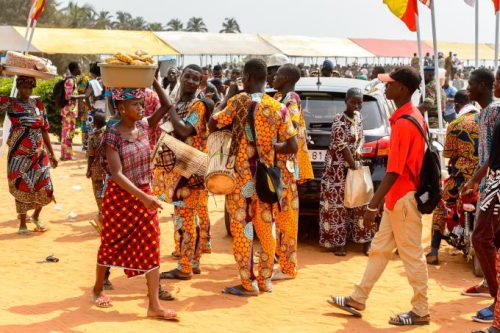
A Beninese group of people. The Intelligence Service should serve the people, not those in power.123rf
For African services, maintaining autonomy from powers that base their strategies for penetrating the continent on economic investments or intelligence manoeuvres is one of the central challenges of recent years. For intelligence analysts, it is enough to think of what was achieved by the Russian secret services to oust France from the Sahara countries and take over. It was excellent intelligence work.
Caught between these dynamics and authoritarian leaders who have little or no intention of giving away the power they hold, African intelligence should, first of all, equip itself with internal transparency mechanisms that define hierarchies, relationships with executive bodies and objectives more clearly than in the past. Otherwise, they will continue to serve those who govern and not states and peoples. (Open Photo: African Mask. 123rf)
(R.B.)



